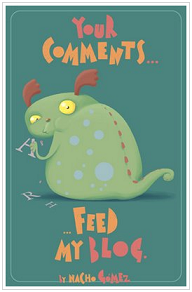Students in St. George College have been working so hard these last weeks. The Science fair is coming soon and everything is ready for that day.
We are just adjusting a few things and decorating our classrooms.
Here you can see some of the effort they put on their work.



Last Friday Alan´s mum and niece came to school.
Alan has been working as a volunteer for over 6 months now and it was very special for us to know that his family was coming to Peru.
Chloe, Alan´s niece, shared with us a Power Point Presentation that she made especially for us and she told us a bit about her life in Scotland. Sixth graders also shared what they did during their holidays. We really enjoyed having a time with them and we loved the sweets they brought from Scotland. THANK YOU VERY NICE!
I know they spent a week in Arequipa visiting the city and surrounders; and as they told us they had a wonderful time there.
They left on Saturday and we hope they have enjoyed their staying here in Peru. It was very nice to meet them. Thanks for coming!
|
Sumerian is the first known written language. Its script, called cuneiform, meaning "wedge-shaped".
The Cuneiform script is one of the earliest known forms of written expression. Created by the Sumerians in the late 4th millennium BC, cuneiform writing began as a system of pictographs. Over time, the pictorial representations became simplified and more abstract.
Cuneiforms were written on clay tablets, on which symbols were drawn with a reed. The impressions left were wedge shaped, thus giving rise to the name cuneiform, wedge-writing.The Sumerian script was adapted for the writing of the Akkadian, Elamite, Hittite, Assyrian, and Luwian languages, and inspired the Old Persian and Ugaritic national alphabets.
It was widely used in Mesopotamia for about 3000 years, though the syllabic nature of the script as it was refined by the Sumerians was unintuitive to the Semitic speakers.
Students of Middle Sixth are learning about this and they are also investigating about writing in other countries. Check what they found!
|
PET is an exam for people who can use everyday written and spoken English at an intermediate level. It covers all four language skills — reading, writing, listening and speaking. Preparing for the exam is a popular way to develop and improve your language skills because it provides practical language practice in a variety of everyday work, study and leisure situations.
PET reflects the use of language in real life, such as understanding signs and announcements, and is accepted by many employers as proof of ability to use English in clerical, secretarial or managerial jobs. It is also widely accepted for use in jobs where spoken English is necessary such as tourism, retail, construction, manufacturing and engineering.
Is PET for you?
Can you use English to:
deal with everyday events?
read simple textbooks or magazine articles?
write letters on familiar subjects?
take notes in a meeting?
If this describes your skills now, or describes the level of skills you are working towards, then PET is the right exam for you.
What will PET do for you?
Cambridge ESOL is a department of the world-famous and historic University of Cambridge. Attaining one of its certificates is an achievement and a reward in itself. However, there are many other benefits to taking PET:
a PET certificate is valid for life. You will not need to take the exam again PET is a truly international certificate, recognised around the world for business and study purposes thousands of employers, universities and government departments officially recognise PET as an intermediate qualification in English although PET is a basic exam, it offers a chance to find out your strengths and weaknesses in using English, and gives you a pathway to higher qualifications such as the First Certificate in English (FCE)
PET's 'Can Do' skills give you the confidence to use English in real situations.
|







